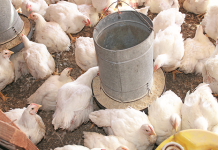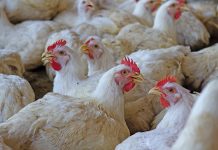In the past few years, I have attended many conferences and forums where smallholder farmers are described as crucial to the world’s food security. This is particularly true of farmers in Africa, which some have identified as one of the world’s future bread baskets. By now, anyone who follows the news knows that existing food producers must at least double what they are producing now to feed the ever-increasing global population, which, it is estimated, will exceed nine billion by 2050.
In reality, however, Africa’s main challenge is not likely to be on trying to feed the world, but herself. By 2050, approximately 62% of the global population will be living in Africa, Southern and Eastern Asia. So, whether Africa likes it or not, it needs to double or even triple its food production to feed itself in the next twenty-something years. There are approximately 120 million smallholder farmers in Africa. So far, these farmers have been unable to increase production. How then can we ensure that they will be able to meet future food demand?
Two factors come to mind – finance and inputs. If farmers cannot access these two things, we can stop nursing the hope of increasing production. In South Africa, so many programmes have been launched by both government and private sector to help smallholder farmers. But we need much more to win this battle. Farmer development cannot be done only for BEE scorecard reasons or just as a social responsibility project. What needs to happen is to ensure that these investments are made in a sustainable way.
Non-profit hub
It has been suggested that an innovative way of tackling this challenge is to integrate a number of small farmer groups into public-private partnerships through a special-purpose agriculture entity. This should be a non-profit organisation funded by private sector companies as well as public entities. It must manage a number of associations, but none larger than 150 members.
This entity would eventually become a one-stop shop for extension services and market advice for the farmer groups, while companies wanting to do business and reach thousands of farmers would have to deal with just one entity, that they are in fact funding. The arrangement would thus be transparent and simple.
Partnerships like this are already happening in countries where TechnoServe, an international non-profit organisation, is working. It provides support and training to entrepreneurs in farming, helps them to develop business plans, links them to markets and seed capital, and improves their management skills. TechnoServe also helps them to grow high-quality produce and run more efficient operations.
In South Africa, TechnoServe works with the likes of Massmart, Woolworths and JP Morgan to achieve these goals. In less than five years, TechnoServe has worked with 582 SA farmers. I have visited several of them and they are doing very well.
I believe if more reputable non-profit organisations, governments and private businesses joined forces, the battle could be won.












